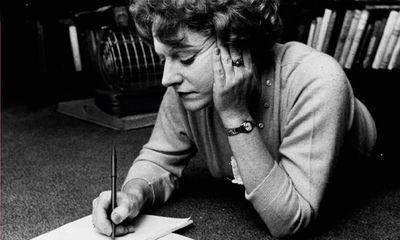Muriel Spark makes the case for abridgement
By MICHAEL CAINES
“Complete and unabridged” – the reassuring phrase isn’t deployed by publishers now as often as it once was. Drastically abridged editions of classic novels were once a staple part of the book business, going back, as far as England is concerned, to at least the early eighteenth century.
(For example: the Bancroft Books series for children, with their nostalgia-inspiring covers, manages to reduce the length of Ivanhoe by about 300 pages.)
In the midst of such contrivances, discerning readers could be flattered with the prospect of the real McCoy. Hence Sidney Lee’s deployment of a powerful word – “pure” – to describe the unabridged, complete “Universal Library” he edited for Methuen. One wonders what he would have made of the later habit of abridging, say, Chaucer’s Troilus and Criseyde. It’s hardly a door-stopper, but you can imagine a medieval poem inspired by the Trojan War daunting English literature undergraduates for other reasons, and OUP et al astutely taking note of this abridgement-sized gap in the market.
In contrast to the Sidney Lee mode of textual idealism, consider the curious case of The Last Man.
In this week’s TLS, Kathryn Hughes reviews the (latest) reissue of Muriel Spark’s “critical biography” of Mary Shelley, first published in 1951. At the back of the book is an appendix. Thirty-two pages long, its opening paragraphs outline the state of things to come before giving way to indented quotations set in smaller type – quotations of only a few lines at first, which soon grow to fill whole pages. The appendix ends with the lines that furnish the novel with its title:
“Thus around the shores of deserted earth, while the sun is high and the moon waxes or wanes, angels, the spirits of the dead, and the ever-open eye of the Supreme, will behold the tiny bark, freighted with Verney – the LAST MAN.”
This is, of course, an abridgement of Mary Shelley’s third novel, The Last Man (1826), and Spark justifies her apparent act of literary heresy on practical grounds.
By her reckoning, Shelley’s original is around 170,000 words long. It’s “almost unknown” to the general public, and is “unobtainable except in very rare editions”. In an earlier chapter devoted to it, she concedes the novel has its faults, but concludes by comparing it to Frankenstein and calling it “wonderful”.
The appendix seeks to support that point. Suspecting that The Last Man “will hold a more pertinent appeal for present-day readers than it did even in Mary’s time”, Spark offers her “utilitarian” version of it in the hope that “wider recognition of its merits may lead to its being reprinted”. (To translate for the internet age: she's uploaded as much data as she can, but doesn't have sufficient bandwidth to upload the whole thing. Hence the abridgement.)
Fourteen years later, the University of Nebraska Press obliged, and their example was followed, some decades on, by Oxford World’s Classics and Broadview Press (overwhelmed with excitement, confused by this copiousness, Amazon currently prints praise for Broadview next to the Oxford edition).
And now The Last Man is available on Open Library, Project Gutenberg etc. So in this instance the practical case for abridgement seems to have disappeared.
What remains is the point that Spark’s eloquent chapter on The Last Man and the abridgement make good, complementary companions. You could do worse than enjoy the later novelist’s appreciation of her predecessor’s work while testing your reactions to Shelley’s prose, via the abridged Last Man.
And: to remove the appendix now would be to abridge Spark’s book . . . as it is, its original title, Child of Light, is long gone.
Peter Stothard's Blog
- Peter Stothard's profile
- 30 followers




